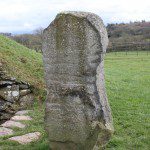 When I wrote about my experience with the National Day of Prayer, I said “there is power in prayer.” That phrase went directly to my fingers from my subconscious, a remnant from my Christian upbringing. I recognized the source as soon as the words appeared on the screen and I considered changing them. But I kept them, because “there is power in prayer” is as true for a polytheistic Pagan is it is for a monotheistic Christian.
When I wrote about my experience with the National Day of Prayer, I said “there is power in prayer.” That phrase went directly to my fingers from my subconscious, a remnant from my Christian upbringing. I recognized the source as soon as the words appeared on the screen and I considered changing them. But I kept them, because “there is power in prayer” is as true for a polytheistic Pagan is it is for a monotheistic Christian.
If we do not understand the power of prayer, it is likely because we do not understand the purpose of prayer.
There are too many people in the wider culture (sadly, including some Pagans as well as Christians) whose idea of prayer resembles a five-year-old sitting on Santa’s lap: gimme gimme gimme. You can have anything you want if you just want it badly enough! While there is some truth to the idea that you will manifest what you focus on, if wanting it or claiming it or asking for it was enough, there would be no poor people and we wouldn’t need to bother looking for a cure for cancer.
The purpose of prayer is not to grant our wishes, or even our needs. Neither is it to heap sycophantic praise on some insecure deity. The purpose of prayer is to draw us closer to the Gods through intimate conversation with Them, and in doing so become more like Them.
The 19th century philosopher Søren Kierkegaard said “prayer does not change God, but changes him who prays.” Kierkegaard was writing in a time and place that was thoroughly Christian, but that concept did not originate with Jesus or Paul or even with the Hebrew patriarchs and prophets. It originated with the pagan Neoplatonists who thought the “immaterial Gods” were perfect and therefore unchanging and beyond the influence of lesser beings like us. I don’t agree with the first part of Kierkegaard’s statement, but the second part is unquestionably true – prayer changes those who pray.
Prayer re-evaluates our circumstances. One of the most basic and most essential prayers is thanksgiving. Prayers of thanksgiving and gratitude focus our attention on our abundance and away from our lack. They remind us that much of what we enjoy comes to us not from our own efforts, but from Nature, our ancestors, our communities, and from the grace of the Gods.
Gratitude alone is not enough – simply saying “thank you” is good, but focusing only on gratitude makes it too easy to forget that while we may have enough, many others do not. And it can lead us to sit down before we’re finished, forgetting that we all have a calling, a True Will to fulfill.
My prayers of thanksgiving remind me that no matter what challenges, difficulties, frustrations and pain I may face on any given day, I have a pretty good life. More importantly, I have what I need to do what I’m supposed to be doing in this world.
Prayer re-focuses our priorities. It is good and right to speak the yearnings of our hearts, to give voice to our innermost desires, and to ask the Gods to help us reach them. But the Gods are not Santa Claus, nor are they sweet old grandmothers who can never tell us “no.” They are mighty beings with their own goals, desires, and areas of responsibility.
Do you really want to ask the Gods of Nature to give you more stuff to exploit Nature? Do you really want to ask a Battle Goddess to smooth over a minor annoyance for you? Do you really want to tell a God of the Otherworld you don’t want to enter Their realm?
When I remember who I’m praying to, I’m careful what I pray for, and I come to a better understanding of what’s important and what’s trivial. When I remember who I’m praying to, I better understand the difference between what I want and what I’ve been told I’m supposed to want.
Prayer infuses us with the essence of the Gods. The Gods know They’re Gods – They don’t need us to continually remind Them of that fact. But when we invoke Them with many names and regale Them with the stories of Their deeds, we remind ourselves of who They are and what They’re like.
When I invoke Cernunnos as the Lord of the Animals I’m reminded of my kinship with all living things. When I invoke Him as the Lord of the Hunt I’m reminded to be conscious of my eating, and to be thankful for the sacrifices of the living things that die so I can live. When I invoke Him as the God of the Forest I’m reminded of the beauty and power and sovereignty of the Land.
When I sit in contemplation of Him and in communion with Him I get a glimpse of His wisdom and His perspective.
Writing about 300 CE, Iamblichus (a Greek Neoplatonist) said:
By the practice of supplication we are raised gradually to the level of the object of our supplication, and we gain likeness to it by virtue of our constant consorting with it, and, starting from our own imperfection, we gradually take on the perfection of the divine.
Whether you see this process as divine or as psychological or (as I do) as a combination of the two, the experience of those of us who pray regularly shows that Iamblichus and Kierkegaard were right – prayer changes those who pray.
Sometimes the Gods are moved by our prayers. Sometimes They fulfill our requests and give us what we need. Sometimes – particuarly when you pray to trickster Gods – They fulfill our requests and give us what we ask for even though it’s the last thing we need. And sometimes They are silent.
But no matter how They answer, there is power in prayer.
















